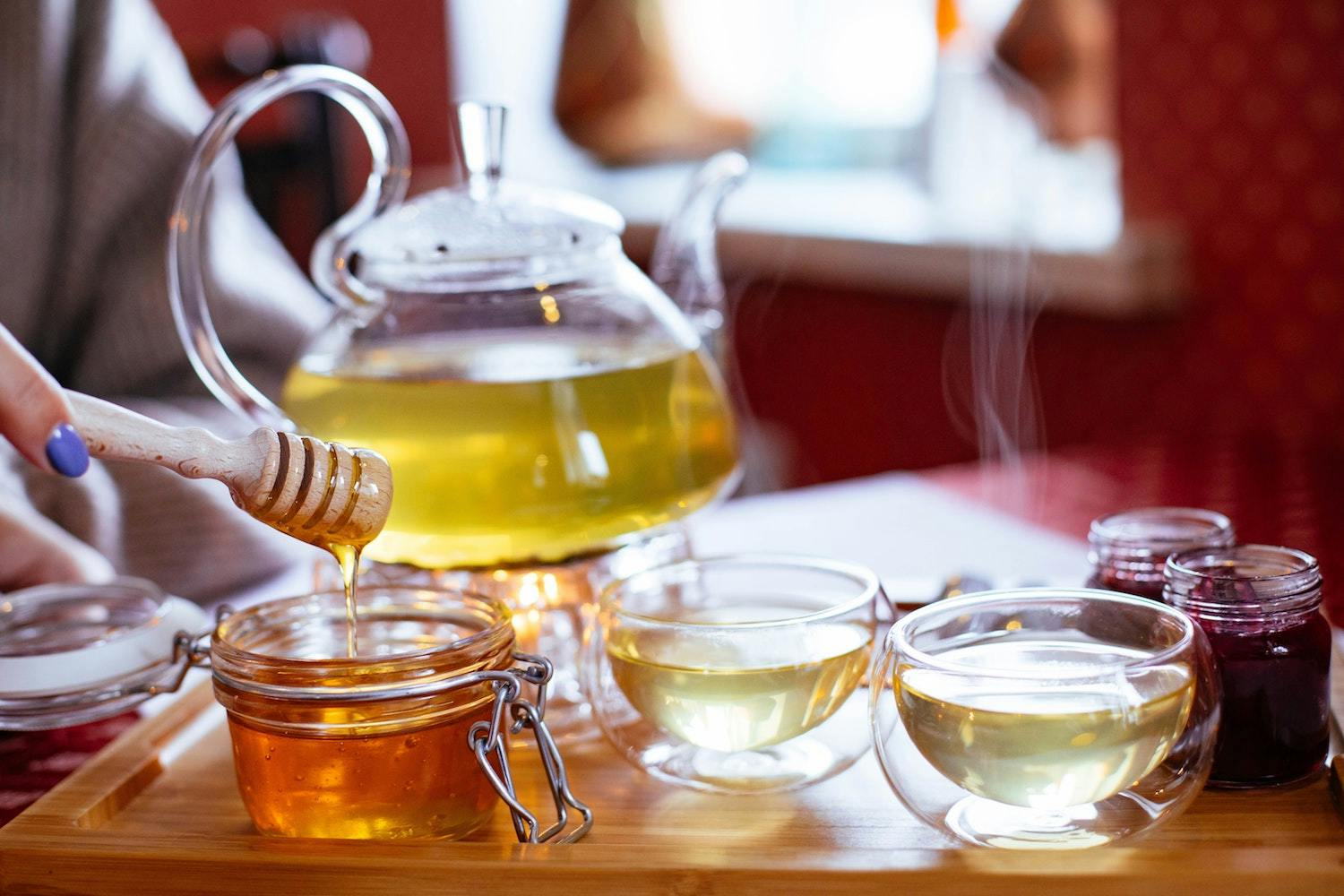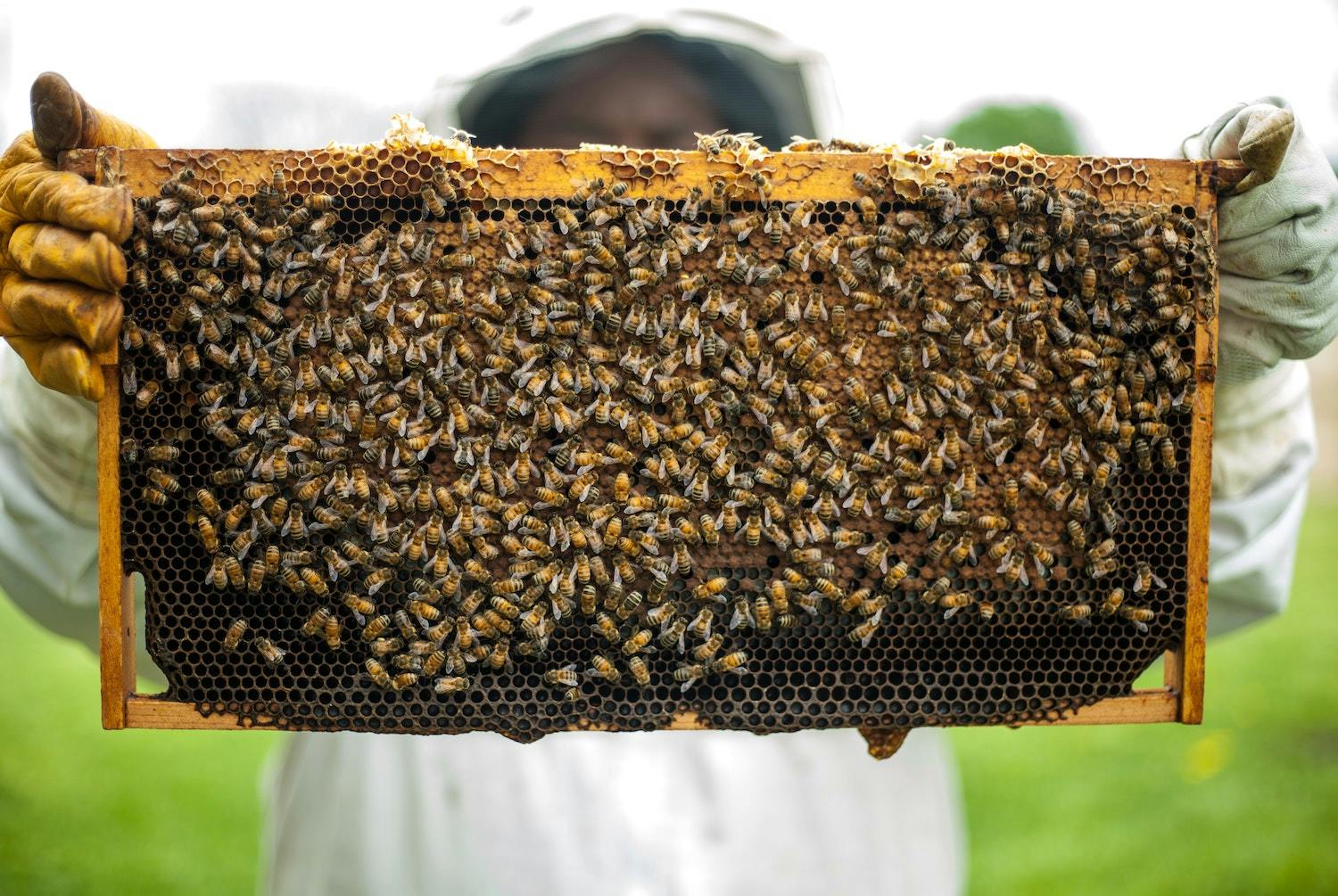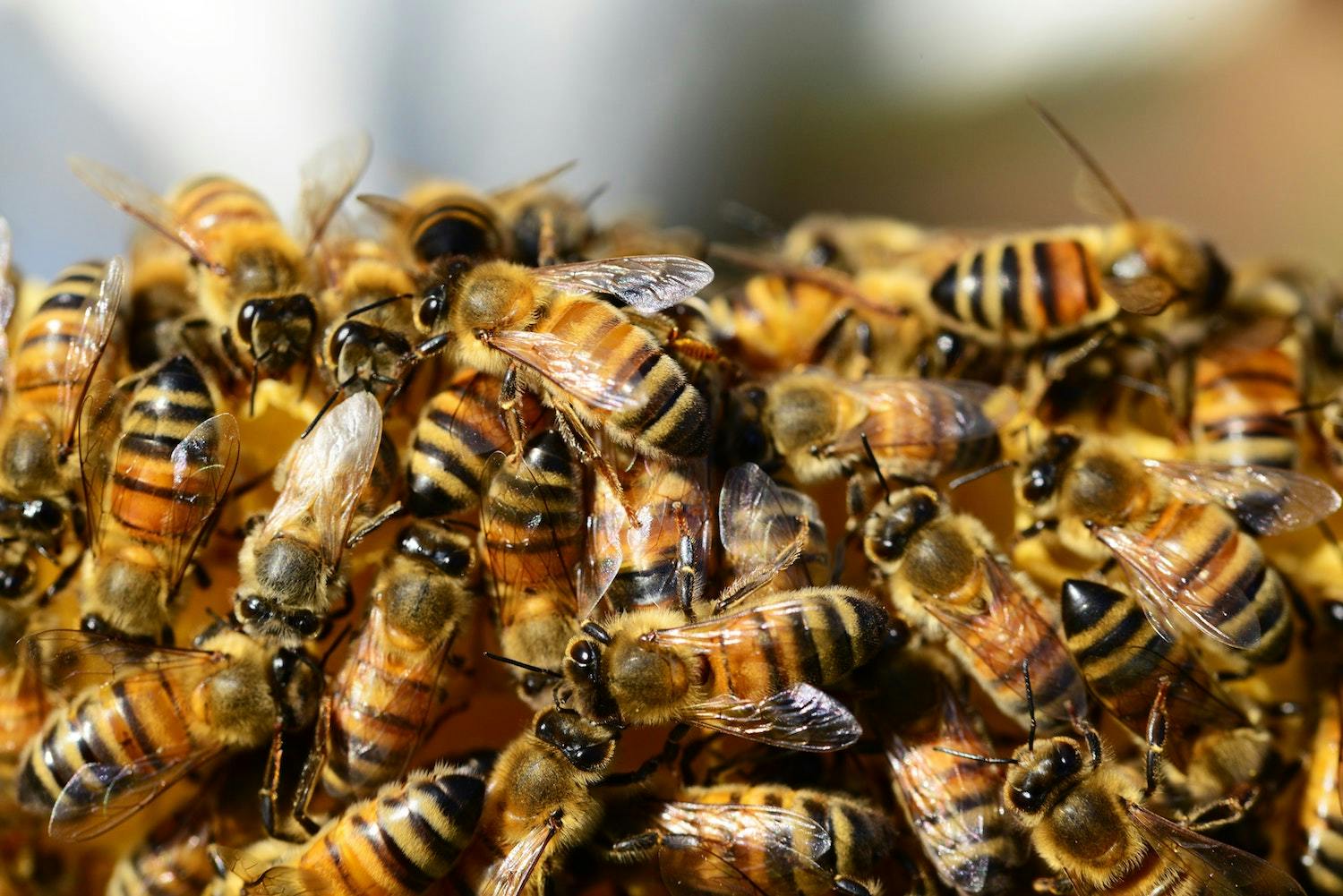Hive Talk - October 2019
Winter is Coming - Buzz Buzz
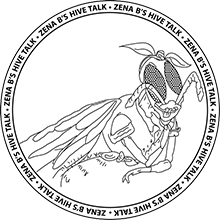
The bees are preparing for their long winter hiatus. They certainly deserve it! As the daylight hours reduce each progressive day, the bees prepare their home for the dark, cold days and nights ahead. The bees produce an excretion called ‘propolis’. It is tree sap that bees use to close up all of the cracks and holes in their hive. They definitely make their home air-tight as I tried to pry a pail of syrup off of their hive and the bees had sealed the feeder pail right onto their top lid! Beekeepers also harvest propolis and use it for medicinal purposes. Bees are so beneficial.
To prepare the colony for survival the worker bees start to select only the most essential members. All the ‘drones’ (males) will be evicted from the hive and left to survive on their own. With the cold weather, and rough handling of the worker bees, Drones do not last too long on their own. The Queen will create new drones in the spring.
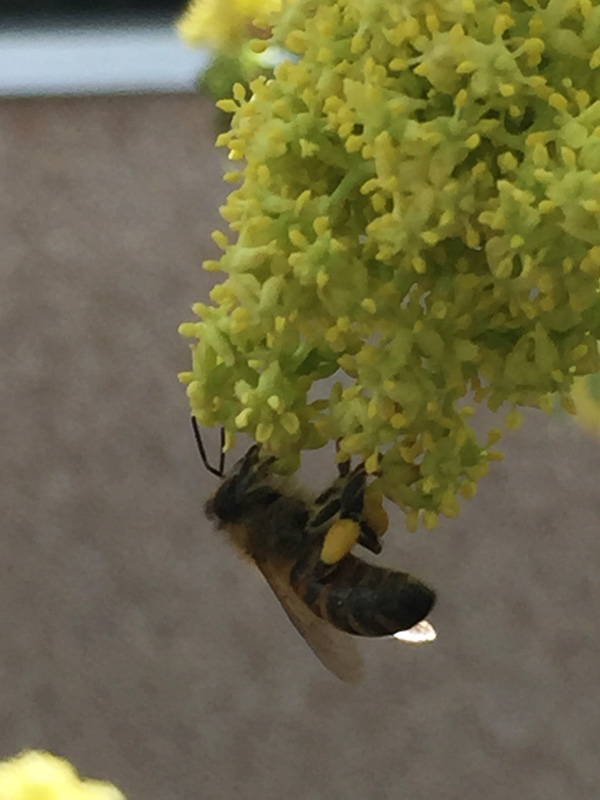
After stocking their honeycombs with pollen, nectar, and honey, reducing their numbers through the elimination of ‘Drones’, older, weaker bees, sealing their hives with tree sap (propolis), the bees will be able to create a cluster formation around the Queen bee to keep her safe, warm, and well fed.
Honey bees are not indiginous to Canada. They need help to be able to survive our cold harsh winters. Swarms will find shelter in a well insulated shed, or an exterior wall of someones homes, or other insulated buildings.
The human’s responsibility to the bees, if they want them to survive the winter, is to wrap the hives with insulation. Place them in a location out of wind, and prevent any moisture from accumulating. They also need help with stocking up their food supplies so I feed them sugar syrup 2:1 (ratio) until freeze up.
Trivia quiz:
The ‘cluster’ that I am referring to reaches temperatures of:
- 75 - 79 degrees F
- 84 - 88 degrees F
- 94 - 98 degrees F
Stay tuned for the answer and more info on what the bees do during our long winter months. If it were up to me I’d be heading south!
Until next month,
